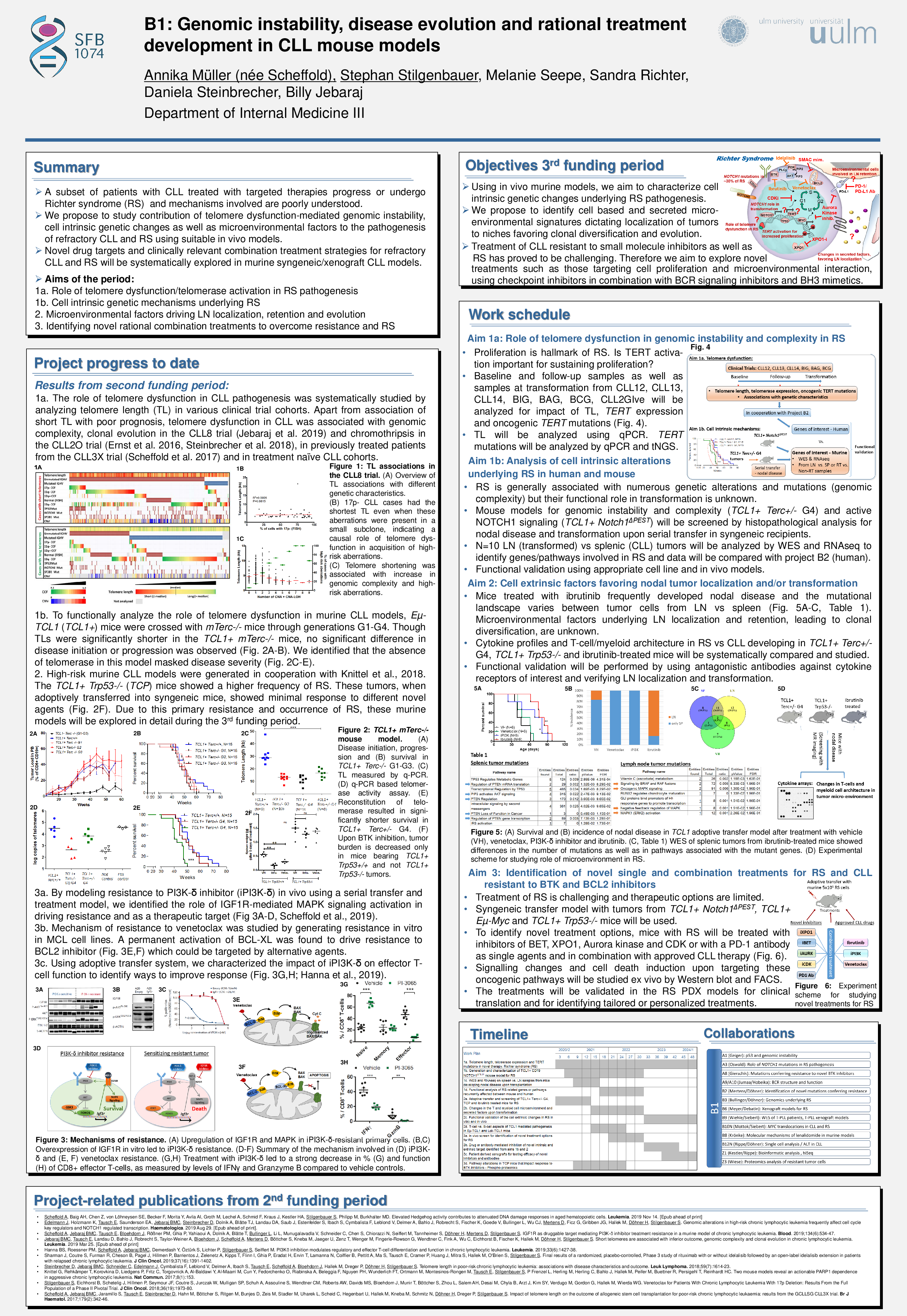B1: Genomic instability, disease evolution and rational treatment development in CLL mouse models
Principal Investigator
Prof. Dr. med. Stephan Stilgenbauer
Department of Internal Medicine III
Ulm University
Albert-Einstein-Allee 23
89081 Ulm
Phone: 0731-500-45521
stephan.stilgenbauer(at)uniklinik-ulm.de

Dr. rer. nat. Billy Jebaraj
Department of Internal Medicine III
Ulm University
Albert-Einstein-Allee 23
89081 Ulm
Phone: 0731-500-45779
billy.jebaraj(at)uniklinik-ulm.de

Summary
CLL treatment paradigm has changed from conventional chemotherapy-based treatment to targeted therapy with small molecule inhibitors, however, genomic complexity affects outcome of both treatments. In the previous funding period, we have characterized the role of telomere dysfunction in genomic complexity, clonal evolution and chromothripsis in CLL patient samples and using telomerase knock-out Eµ-TCL1 mice. Additionally, using in vivo and in vitro systems we uncovered mechanisms underlying resistance to PI3Kδ and BCL2 inhibitors. Another disease phase poorly understood is Richter syndrome (RS) where CLL transforms to an aggressive lymphoma with very poor prognosis. In the proposed project, we aim at deciphering the role of telomere dysfunction-driven genomic instability in the transformation of CLL to RS. Cell-intrinsic genetic factors that drive transformation will be identified in a murine versus human comparative study using mouse models with high incidences of nodal disease or transformation. On the other hand, cell-extrinsic factors that favor homing and retention of tumors in lymph node, ultimately leading to RS, will be analyzed in vivo. Lastly, therapeutic relevance of the findings will be assessed in vivo using novel inhibitors or antibodies targeting the identified genetic or microenvironmental factors. An in vivo drug screen will be performed with BET, XPO1, Aurora kinase, CDK inhibitors as single agents and in combination with approved CLL therapy to identify effective treatment options for RS. Clinical relevance of these novel therapies will be evaluated using patient-derived xenografts of RS. Overall, the project will comprehensively analyze mechanisms underlying RS and modes for successful treatment.
For a current list of all project-related publications, please go to this page

